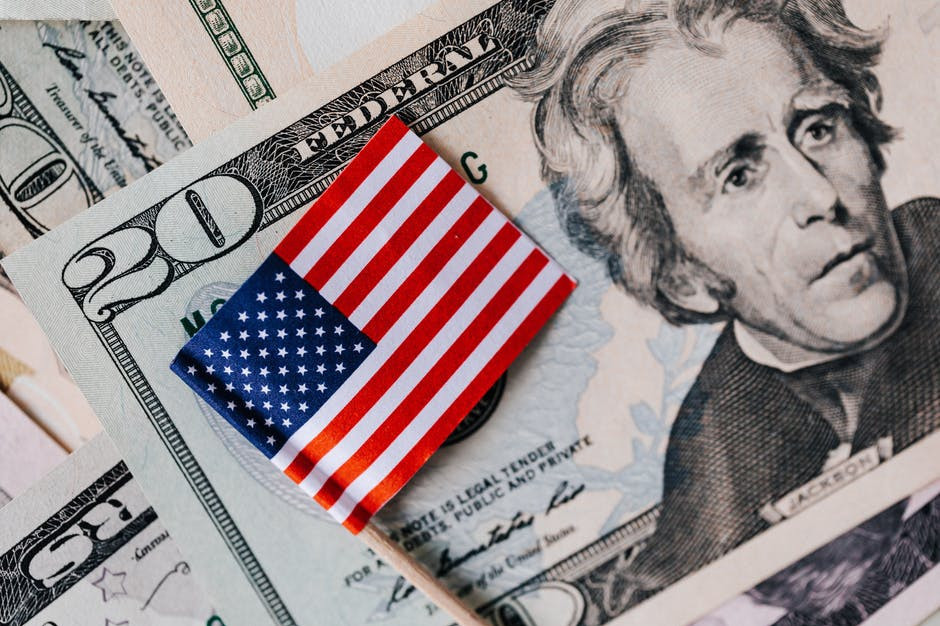How To Get Out Of Debt With A Low Income.
If you ever thought that getting out of debt with a low income was difficult, wait until you try to get out of debt with a low income during this period of the COVID-19 pandemic!
We all know that the COVID-19 pandemic has triggered an unprecedented wave of business closures, placing millions of Americans out of work. It has also exposed a deeper, more structural problem with the United States economy that has been looming just beneath the surface for some time. In the following paragraphs, we will learn more about how to get out of debt with a low income during this difficult period.

Understanding Debt And How To Live Without Debt.
It’s often believed that debt can be used as leverage and that it can get you where you want to go faster than living a debt-free life. That can be true, but living with debt can also get you bankrupt faster than living a debt-free life. Debt has become a way of life in the United States.
Many Americans are now living from paycheck to paycheck as result, a lot of people are also in debt and some are still borrowing more money. Ironically, we live in one of the wealthiest countries in the world, but we always have money problems. We can work hard all our lives but retire poor. We do so much to raise our kids just to see them finish college with a lot of debt.
Debt becomes a way of life. We don’t have much, and we don’t know much. Nobody teaches us how to manage our money in school. Financial issues are not often discussed, and financial products are not always explained. Most people have trouble balancing their checkbooks and reading a financial statement. We use credit cards every day and don’t always understand all the hidden charges. We may be active spenders but passive savers. In my videos, I want to share with you about personal finance as to how a friend would talk to another friend.
This post contains affiliate links. Please please read my Disclaimer for more information.
Debt Management is one of the four pillars of building a solid financial foundation or living a life of financial freedom. We can not live a life of financial freedom if we owe a lot of debt. Most interest rates on our debts are higher than the interest rates on our saving or investment accounts. That’s why it’s advisable to pay off your first before saving and investing.
Don’t Get More Debt when you have a low income.
I know a lot of people might be wondering is it possible, yes it is very possible to live without debt. You can pay it all off and stop borrowing money. Some people get more debt when they have a low income because they spend more money on things they don’t need with money they don’t have.

What Is The True Cost Of Debt?
You’re paying lots of interest to someone else.
This money is not working for you. Here’s is why you need to know the cost of debt;
Rule of 72.
How to use the Rule of 72? Divide 72 by the interest rate of your loan or credit card. The result is the number of years it takes for the debt or investment to double. Let’s take a look at the following interest rates; 18%, 20%, and 24%.
72/18 = 4 72/20 = 3.6 72/24 = 3
Assuming that you have a $10,000 credit card debt, let’s see how long will it take before the borrowed amount doubles!
At 18% interest rate, it will take 4 years for your borrowed amount to double to $20,000.
At 20% interest rate, it will take 31/2 years for your borrowed amount to double to $20,000.
At 24% interest rate, it will take 3 years for your borrowed amount to double to $20,000. This is why it’s good to pay your debt as fast as possible to avoid the double effect.
This is why it’s good to pay your debt as fast as possible to avoid the double effect. Here are the simple ways to manage your debt;
1. Don’t Get More Debt – If you borrow more money, the interest will skyrocket over time which you will not be able to pay.
Always buy used items from thrift stores and classifieds when you need to buy anything, including clothes, furniture, vehicles, and even appliances.
2. Live Below Your Means – Spend less and only buy things with your own money instead of credit.
Make a grocery shopping list as per your budget. Let’s assume you have allocated a certain amount for grocery shopping, then you shouldn’t spend more than this amount. You can buy groceries online to get all the items on your list at a huge discount. This will help you save on grocery shopping. Always use cash, debit cards, and prepared credit cards when shopping for groceries because you don’t have to pay interest rates. You are using your own money.
3. Reduce Your Credit Cards Usage – Many middle-class Americans turn to use their credit cards as a plastic money savior to help purchase necessary items when they have a lot of debt and low income.
4. Make a Budget – Budgeting helps you manage your spending and also helps manage your debt. Use coupons for grocery shopping and for dining out. Reduce gas and parking costs. Save by carpooling, walking, biking, or taking public transport. Avoid ATM fees, checking and saving accounts fees, overdraft charges bounced checks, money orders, the list goes on.
5. Cancel Any Unnecessary Subscriptions – Recurring payments can add up, even if you don’t have any unnecessary expenses. During COVID-19, my family canceled our gym membership because we not going to the gym, so we find alternative ways of exercising like using home gym pieces of equipment.
Use Debt Snowball Method.
With the debt snowball method, you always put your extra money toward the debt with the smallest balance.
Here’s an example – Assuming that you have a credit card with a $1,000 balance, another with a $3,000 balance, and a third with a $7,500 balance. You make the minimum payments on each card, and any money left over would go toward the card with the $1,000 balance. Once you pay off that card with $1,000 you would put your extra money toward the card with the $3,000 balance.
Mathematically, the debt snowball method isn’t optimal. You would also save more money on interest rates by prioritizing debts with the highest interest rates on credit cards or loans.
Using this method is extremely popular because it works from a psychological perspective. When you prioritize your smallest debt, you get one of your debts eliminated as quickly as possible. That gives you the motivation that you can take care of the rest and be on your way to live a debt-free life.
Take Control Of Your Cash Flow.
Get educated about all aspects of personal finance to take control of your cash flow and reduce or eliminate your debt with a low income. You also have to make money when you can, while you can. If you have multiple sources of income, paying your debt with a low income during this period of the COVID-19 pandemic won’t be a problem.
We spend so many years in school learning how to make a living, but we should also invest our time learning the financial basics to save a fortune for our family and our future! If you don’t re-evaluate your spending habits and determine where your money is going, you will never be able to pay off your debt with a low income during this pandemic.
“If you have any feedback about how to get out of debt with low income that you have tried out or any questions about the ones that I have recommended, please leave your comments below!”
NB: The purpose of this website is to provide a general understanding of personal finance, basic financial concepts, and information. It’s not intended to advise on tax, insurance, investment, or any product and service. Since each of us has our own unique situation, you should have all the appropriate information to understand and make the right decision to fit with your needs and your financial goals. I hope that you will succeed in building your financial future.
Leave a Reply